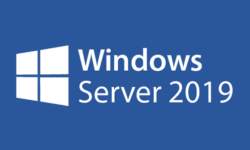Microsoft “Phoning Home” Once Again…..Then Backing Down Somewhat

Microsoft designed Windows Genuine Advantage (WGA) to prevent software piracy. WGA consists of two components: Validation and Notification. The validation part ensures that you are using a legal copy of Windows, while the notification part is responsible for displaying alerts on pirated copies of Windows. In addition, it also “phones home” to Microsoft with certain information.
Recently, several security experts complained about this “phoning home” feature and some, like Brian Livingston of Windows Secrets, publicly referred to WGA as Microsoft spyware in his article Genuine Advantage is Microsoft Spyware. First Microsoft denied that WGA is spyware but when things got pretty hot, Microsoft decided to back down a bit.
One of the complaints about WGA was that it sends system-validation information to Microsoft every time you rebooted your PC, even if your Windows version was legitimate and Microsoft has verified it. The second complaint was that Microsoft issued WGA to customers as a high priority update through Automatic Updates and Windows Update, while WGA was still in beta. This really got the customers upset. While Microsoft continuously stresses the importance of using beta products only on test computers in lab, people complained that it turned the entire world into one large test lab. Needless to say, neither the privacy rights advocates nor security experts were very amused.
You have to credit Microsoft because it decided to cool things down a bit by announcing that it will check for validation only the first time and not at every reboot and it also decided to stop “phoning home” with system-validation information.
This is not the first attempt from Microsoft for having Microsoft products secretly “phone home.” If you recall, Microsoft used the “phone home” feature in Windows XP. You can read my article Tired of Windows XP Phoning Home? on this topic. A printer friendly version of the article is available here. After numerous complaints, Microsoft announced at that time that they won’t be secretly “phoning home” in the future.


